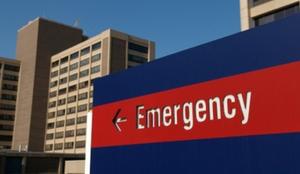New Year Eve’s securityEmergency responders prepare for chaotic New Year’s Eve
Emergency responders across the nation are gearing up for another busy New Year’s; each year the holiday sends overly enthusiastic revelers to the emergency room with alcohol-fueled deaths and injuries, but this New Year’s is expected to be particularly chaotic as it falls on a Saturday, giving party-goers all day to imbibe and a full day to recover

Emergency rooms expect increased activity this weekend New Year's Eve // Source: blackheartgoldpants.com
Emergency responders across the nation are gearing up for another busy New Year’s.
Each year the holiday sends overly enthusiastic revelers to the emergency room with alcohol-fueled deaths and injuries, but this New Year’s is expected to be particularly chaotic as it falls on a Saturday, giving party-goers all day to imbibe and a full day to recover.
Last year emergency rooms noticed a spike in activity due to the fact that the holiday fell on a Friday night. In San Francisco, emergency rooms saw a 50 percent increase in New Year’s patients compared to the previous year, while the Department of Emergency Management reported 100 more 911 calls.
Emergency officials expect this year to be even worse and are busy making preparations.
“We’re already preparing to see more patients,” said Dr. Malini Singh, the interim medical director for San Francisco General Hospital’s emergency department. “It’s just a reality of New Year’s Eve.”
Alcohol-related incidents and injuries vary widely from broken noses to fatal driving accidents.
To minimize the number of incidents, Dr. Steven Polevoi, medical director for the UCSF emergency department, said revelers should be careful and make wise decisions in terms of alcohol.
“I don’t want people to think I’m encouraging drinking, but if you do, you have to drink responsibly,” Dr. Polevoi said.
Polevoi was also careful to note that with scarce resources every careless alcohol-induced injury or accident takes away valuable space for heart attack patients or victims with life-threatening injuries and illnesses.
“If you do drink so much that you end up in the back of an ambulance, you end up in an emergency department, and that has implications for other patients,” Polevoi said. “You need to be aware that your behavior has an impact not just on you.”
